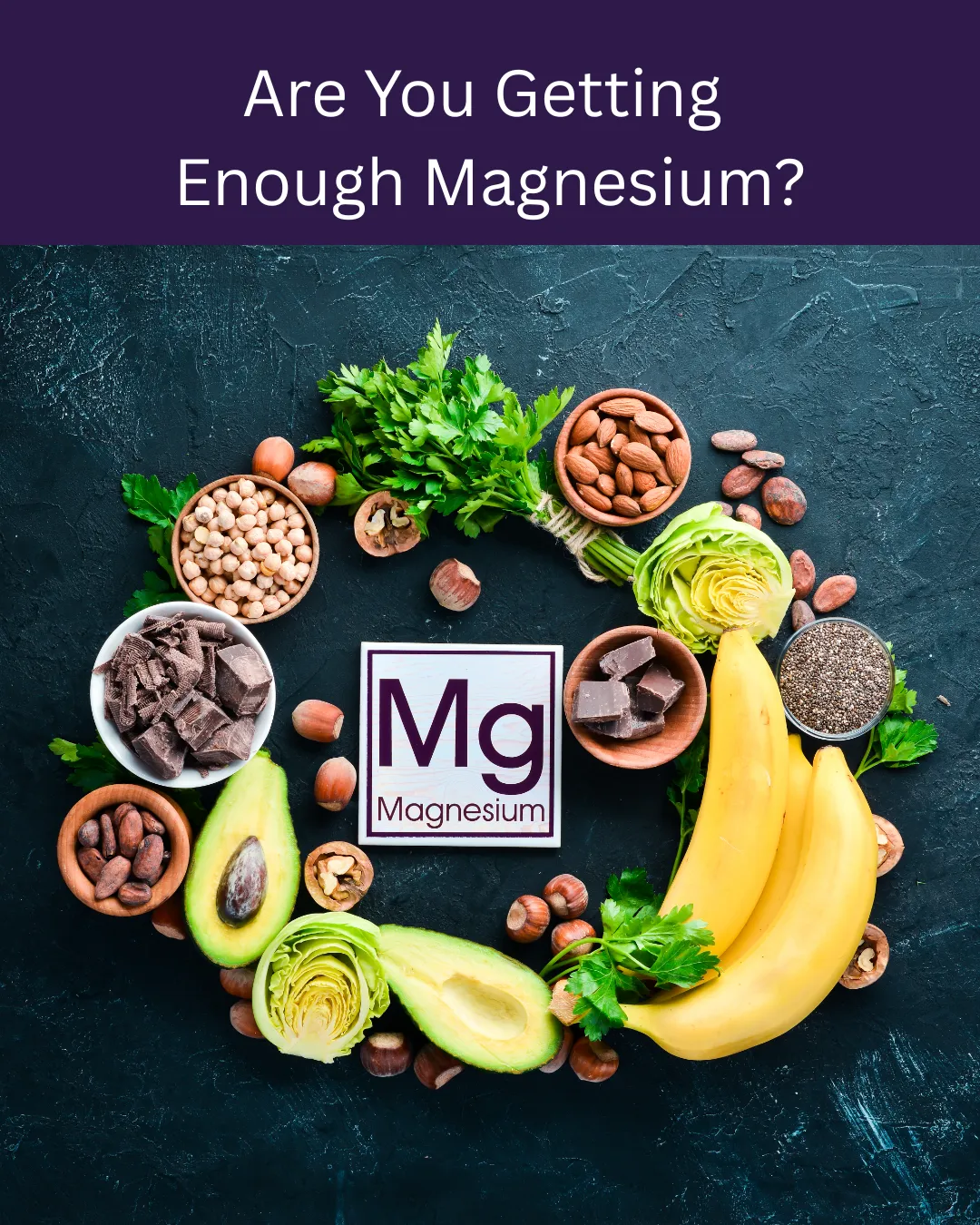
Unlocking the Power of Magnesium: The hidden Deficiency?
Did you know that up to 60% of U.S. adults don’t get enough magnesium—and that this ‘invisible deficiency’ may be fueling fatigue, poor sleep, and cardiovascular risk? When I was in my Integrative Health Practitioner training, I was surprised to learn just how common and impactful this mineral deficiency really is.
A study as far back as 2003 indicated that over half of adults in the US did not meet the recommended daily allowance, much less the preferred Optimal Daily Intake of between 500-750 mg per day. More recent research suggests that magnesium deficiency is "a public health crisis of under-recognition” and deficiencies a key driver of cardiovascular problems.
Why Magnesium Matters?
Magnesium plays a role in over 300 enzymatic processes, affecting a wide variety of bodily systems and processes, including:
Energy Production – powers ATP, your cellular energy currency.
Muscle & Nerve Function – supports smooth heart rhythm, muscle relaxation, and nerve communication.
Bone & DNA Health – builds strong bones, helps repair DNA, and activates antioxidants like glutathione.
Blood Sugar & Blood Pressure Regulation – improves insulin sensitivity and stabilizes cardiovascular health.
Vitamin D Activation – without magnesium, vitamin D cannot be effectively converted or used.
Signs of Low vs. High Magnesium
Magnesium deficiency is much more common than magnesium excess, which is rare and can be related to over supplementation or kidney dysfunction.
Low Magnesium (Deficiency)
Fatigue, weakness, poor sleep, irritability
Muscle cramps, restless legs, palpitations
Headaches, migraines, anxiety
High Magnesium (Excess)
Nausea, abdominal cramps, diarrhea
Flushing, lethargy, dizziness
Very rare: slowed breathing, low blood pressure, heart issues (mainly with kidney dysfuction or excessive supplements)
Causes of Magnesium Deficiency
Causes of magnesium deficiency include eating too much processed foods, digestive issues and impairments, certain medications, stress and lifestyle and aging, common soil depletion causing depletion in foods, high caffeine or alcohol intake.
The first step is to make sure you don’t have any imbalances effecting your ability to absorb Magnesium with the digestive system and then focus on eating more high Magnesium foods, as well as organic supplementation as needed.
Foods Rich in Magnesium
Foods high in Magnesium include Wheat Bran, almonds, cashews, pumpkin seeds, spinach, bran flakes, baked potato, pinto beans, brown long grain rice, lentils, bananas, low fat yogurt, dark chocolate, avocados, dark, leafy greens
Testing & Personalized Guidance
At Natura Sophia Integrative Wellness, we view magnesium as part of your whole-body wellness picture:
Intake evaluation – we look at diet, stress, lifestyle, and medications.
Learn Your Numbers - The Minerals & Metals at-home test will give you insight on your Magnesium levels and what protocol you should follow to adjust any imbalances.
Food-first guidance – we help you integrate magnesium-rich foods naturally.
Targeted supplementation – when needed, we recommend forms and doses that minimize side effects like diarrhea.
Holistic synergy – magnesium is woven into your full wellness plan alongside sleep support, stress care, and digestion.
If you’ve been experiencing fatigue, restless sleep, or muscle tension, magnesium may be part of the picture. At Natura Sophia Integrative Wellness, we can help you test your levels, optimize your intake, and weave magnesium into a holistic plan that supports your energy, mood, and vitality.
Resources Cited:
Rosanoff, A., Weaver, C. M., & Rude, R. K. (2012).
Suboptimal magnesium status in the United States: Are the health consequences underestimated?
Nutrition Reviews, 70(3), 153–164.
https://doi.org/10.1111/j.1753-4887.2011.00465.xFound that 60% of U.S. adults do not meet the RDA for magnesium.
DiNicolantonio, J. J., O'Keefe, J. H., & Wilson, W. (2018).
Subclinical magnesium deficiency: A principal driver of cardiovascular disease and a public health crisis.
Open Heart, 5(1), e000668.
https://doi.org/10.1136/openhrt-2017-000668States magnesium deficiency is "a public health crisis of under-recognition."
Volpe, S. L. (2013).
Magnesium in disease prevention and overall health.
Advances in Nutrition, 4(3), 378S–383S.
https://doi.org/10.3945/an.112.003483Highlights magnesium’s role in over 300 enzymatic processes and common deficiency in the population.
